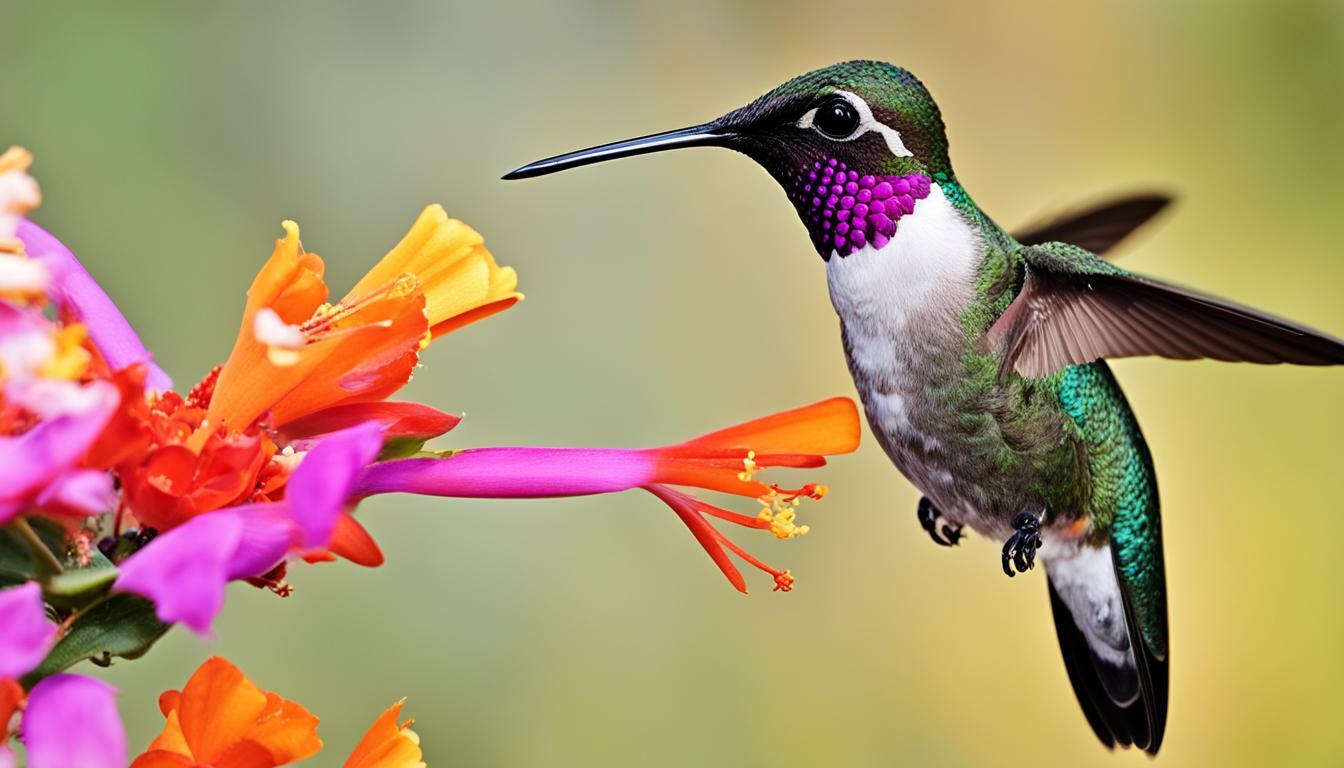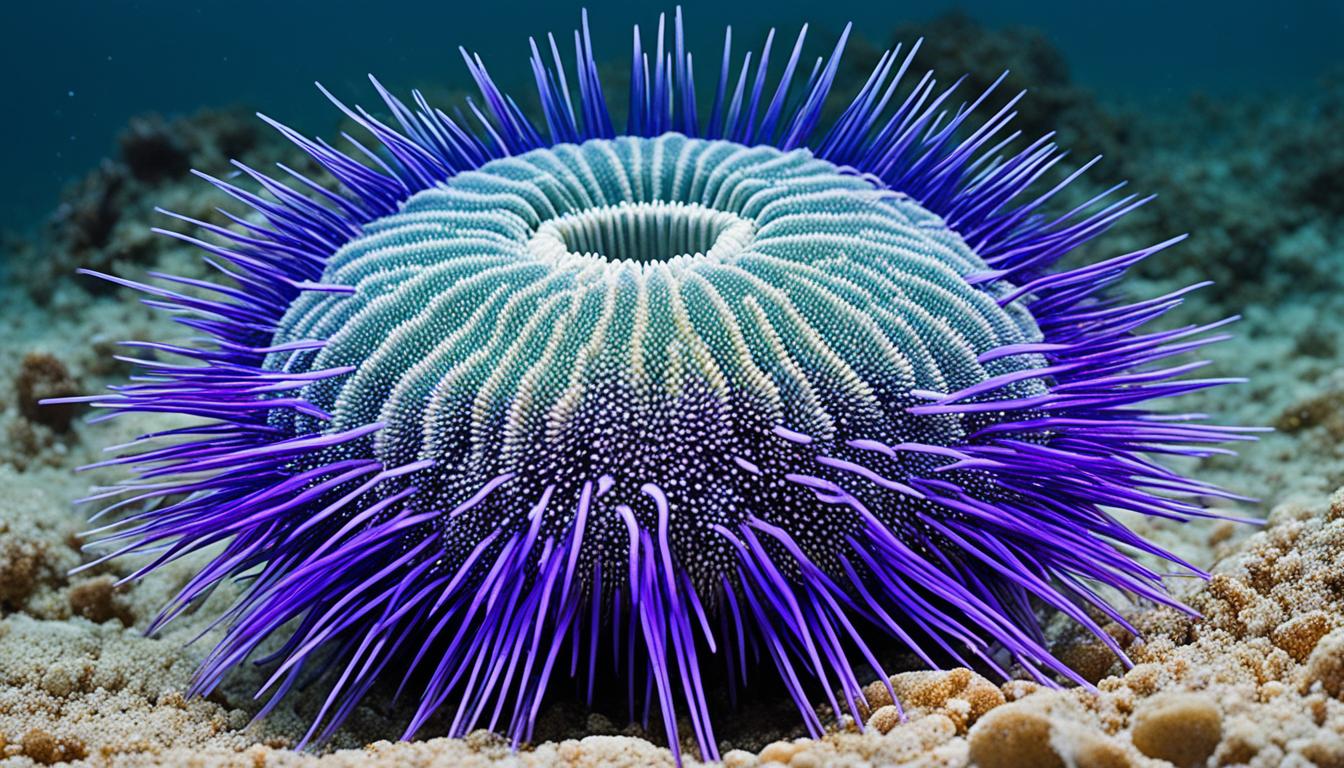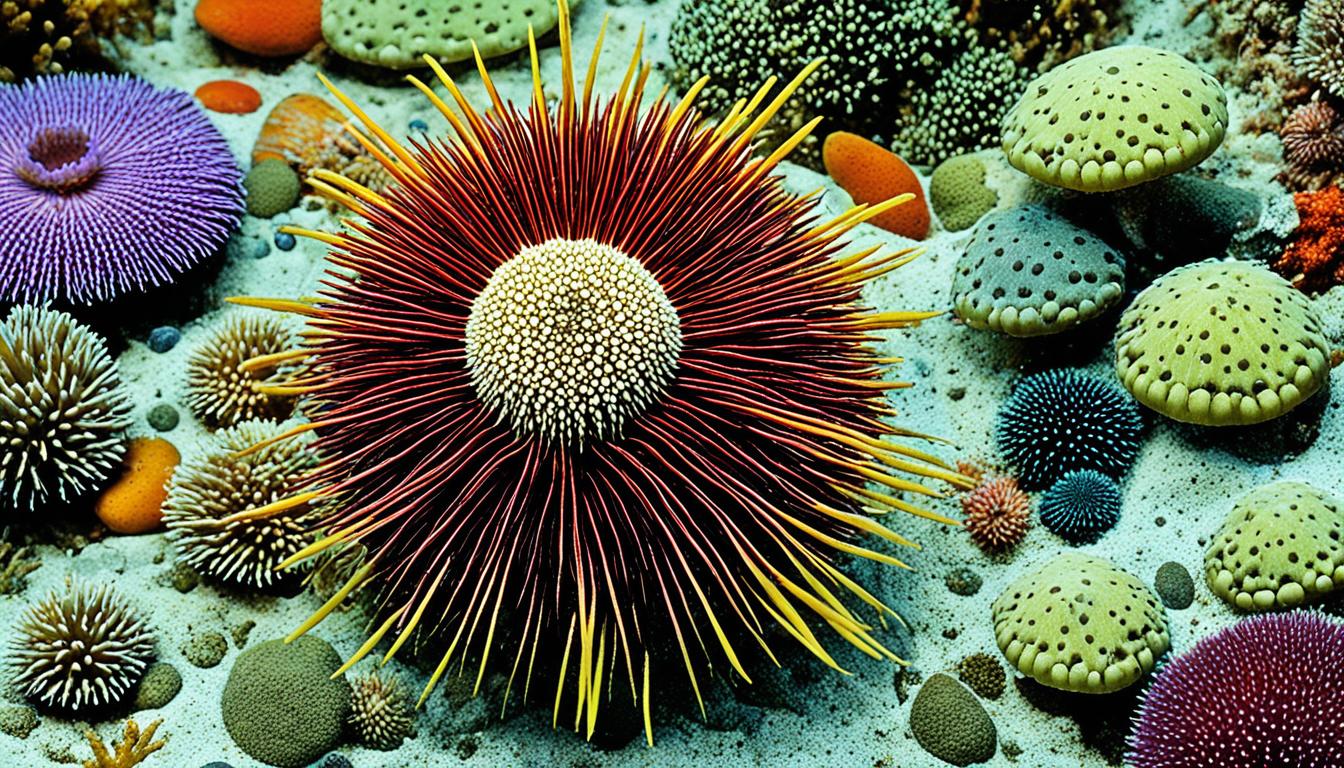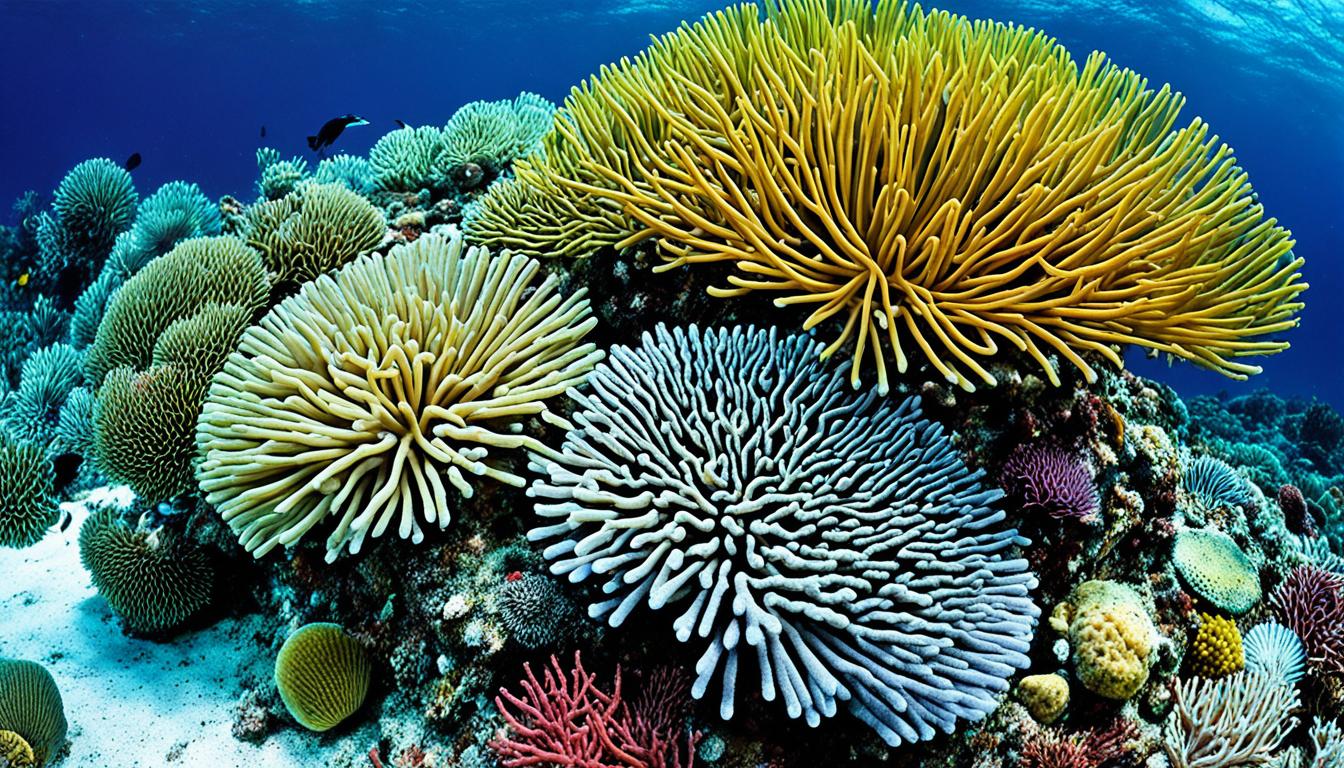As a hummingbird enthusiast, you want to provide your feathered friends with fresh and nutritious nectar. But does hummingbird nectar go bad? The answer is yes. Over time, nectar can spoil, and it’s important to know the signs of spoiled nectar so you can keep your hummingbirds healthy and happy.
Signs of spoiled hummingbird nectar include a sour or fermented smell, cloudy or discolored appearance, and the presence of mold. While these signs may not always be visible, they can indicate that the nectar is no longer safe for hummingbirds to consume.
Key Takeaways:
- Hummingbird nectar can go bad over time
- Signs of spoiled nectar include a sour smell, cloudy appearance, and mold
How Long Does Hummingbird Nectar Last? Extending Shelf Life of Hummingbird Nectar
If you’re an avid hummingbird enthusiast, you know that keeping fresh nectar available is essential to attracting these lovely birds. However, nectar can go bad quickly if not stored properly. So, how long does hummingbird nectar last, and is it possible to extend its shelf life?
The answer to the first question is that hummingbird nectar typically lasts for 3-5 days in hot weather and up to a week in cooler temperatures. But don’t worry, you can take steps to extend its shelf life!
To keep your nectar fresh for longer, start by ensuring that your feeders are kept clean and free of debris. This means cleaning them thoroughly with hot water and soap before refilling. Additionally, try to keep your feeders in a shady area to prevent the nectar from spoiling too quickly.
Another tip for extending the shelf life of hummingbird nectar is to add a tiny amount of white vinegar to the mix. This acts as a natural preservative, inhibiting the growth of bacteria and fungi that can cause spoilage. However, be sure to only use a small amount, as too much vinegar can harm hummingbirds. A general rule of thumb is to add no more than a teaspoon of vinegar per cup of water.
Finally, consider making smaller batches of nectar at a time. This way, you can easily replace the nectar every few days without wasting a lot.
Preserving Hummingbird Nectar Freshness
Proper storage is crucial to maintaining the freshness of your hummingbird nectar and ensuring that it lasts as long as possible. Here are some tips to preserve your nectar:
- Store the nectar in a cool and dry place away from direct sunlight, which can cause spoilage.
- Use a clean and dry container to store your nectar and avoid using containers made of metal or reactive plastic as they can be harmful to the hummingbird’s health.
- Replace the nectar every few days to keep it fresh, and clean the feeder thoroughly each time before refilling.
- If you have leftover nectar, you can freeze it in ice cube trays and thaw it as needed. This will help to extend its shelf life.
By taking these steps to preserve the freshness of your hummingbird nectar, you can ensure that it remains safe and healthy for your feathered friends to enjoy.
Preventing Spoilage of Hummingbird Nectar
Hummingbirds are attracted to fresh nectar, and spoiled nectar can not only deter them from visiting your feeder but also cause harm to their health. Here are some tips to help you prevent spoilage and maintain the quality of hummingbird nectar:
Choose the right feeder
Choosing a feeder that is easy to clean is the first step in preventing spoilage. A feeder with a small opening or difficult-to-reach parts can make it challenging to clean properly. When selecting a feeder, consider one that is easy to disassemble and clean regularly.
Clean the feeder regularly
Regular cleaning is crucial in preventing spoilage. You should clean your feeder thoroughly every time you refill it. Use warm, soapy water to clean all parts, including the feeding ports, and rinse it thoroughly with clean water. If you notice any mold or residue, soak the feeder in a solution of one part vinegar to four parts water for at least an hour before cleaning with soapy water.
Replace nectar frequently
To prevent spoilage, you should replace the nectar at least every 2-3 days, especially in warm weather. The heat can accelerate the growth of bacteria and yeast, leading to spoilage. If you notice the nectar becoming cloudy or changing color, it is a sign that it has gone bad.
Store nectar properly
When storing hummingbird nectar, keep it in a clean, cool, and dry place. Avoid exposing it to direct sunlight or heat, as this can cause spoilage. If you have leftover nectar, store it in an airtight container in the refrigerator for up to a week. Before using it, make sure to bring it to room temperature and stir it well to ensure the sugar is fully dissolved.
By following these steps, you can help prevent spoilage and maintain the quality of hummingbird nectar. This will not only ensure that your feathered friends continue to visit your feeder but also promote their health and well-being.
Avoiding Rancidity in Hummingbird Nectar
One of the biggest concerns for hummingbird enthusiasts is the rancidity of their nectar. Rancid nectar can not only be harmful to hummingbirds but can also attract unwanted insects and bacteria. Here are some tips to avoid rancidity in your hummingbird nectar:
- Keep your nectar fresh: The fresher the nectar, the lower the chance of it becoming rancid. Change your nectar every 2-3 days, especially in hot weather.
- Store nectar properly: Store the nectar in a cool, dry place away from direct sunlight. Exposure to heat and light can speed up the process of rancidity.
- Clean your feeders regularly: Dirty feeders can harbor bacteria that can turn fresh nectar rancid quickly. Clean your feeders thoroughly every time you change the nectar.
- Use clear nectar: Opt for clear nectar over colored ones that contain artificial dyes or flavors that can speed up the process of rancidity.
By taking good care of your hummingbird nectar, you can ensure that it remains fresh and safe for these lovely birds to enjoy.
Conclusion
As a responsible bird enthusiast, you should always take measures to ensure that the hummingbird nectar you provide is fresh and of high quality. Remember that spoiled nectar can be harmful to the birds and can cause illnesses.
By following the tips and guidelines mentioned in this article, you can extend the shelf life of your hummingbird nectar and keep it from going bad. Proper storage and regular replacement of the nectar will help keep it fresh and attractive to hummingbirds.
To maintain the quality of your nectar, it is recommended that you use only clean and sterilized containers, fresh water, and high-quality sugar. Avoid using honey, artificial sweeteners, or red dyes.
By adhering to these best practices, you can ensure that hummingbirds continue to visit your feeders and enjoy the nourishing benefits of your nectar. With proper care, you can make your backyard a welcoming haven for these fascinating creatures.
Are Praying Mantises a Threat to Hummingbirds?
The praying mantis hummingbird diet has sparked curiosity regarding potential threats to hummingbirds. While praying mantises are fierce insect predators, they mainly target smaller insects and do not pose a significant danger to hummingbirds. Hummingbirds primarily rely on nectar as their food source, making them less susceptible to being preyed upon by praying mantises.
FAQ
Q: Does Hummingbird Nectar Go Bad?
A: Yes, hummingbird nectar can go bad. Signs of spoiled nectar include a cloudy appearance, mold growth, or a sour smell. It is important to regularly check the nectar and discard any that has gone bad.
Q: How Long Does Hummingbird Nectar Last?
A: The shelf life of hummingbird nectar can vary depending on various factors such as temperature and exposure to sunlight. On average, nectar can last for about one week before it starts to spoil. To extend the freshness of the nectar, it is recommended to change it every 3-5 days.
Q: How Can I Preserve Hummingbird Nectar Freshness?
A: To preserve the freshness of hummingbird nectar, store it in a cool and dark place, away from direct sunlight. It is also important to clean the feeder regularly and replace the nectar every few days. Proper storage and maintenance will help maintain the quality of the nectar for the hummingbirds.
Q: What Can I Do to Prevent Spoilage of Hummingbird Nectar?
A: To prevent spoilage of hummingbird nectar, make sure to clean the feeder thoroughly before refilling it. Avoid adding any additives or sweeteners to the nectar as they can promote bacteria growth. Additionally, consider using smaller amounts of nectar to reduce the likelihood of wastage.
Q: How Can I Avoid Rancidity in Hummingbird Nectar?
A: Rancidity in hummingbird nectar can occur due to the oxidation of sugars. To avoid this problem, only mix small amounts of nectar at a time and store the remaining concentrate in a sealed container in the refrigerator. This will help slow down the oxidation process and keep the nectar fresh for longer.










